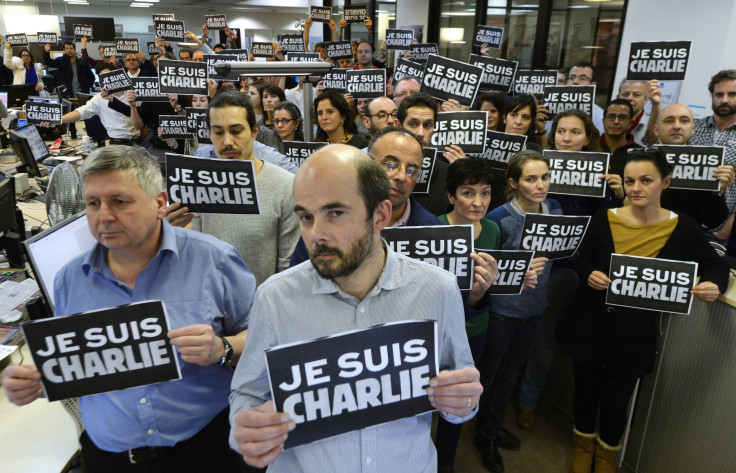Charlie Hebdo Shooting: Journalists In Europe Face Increasing Violence and Intimidation

European journalists are working in increasingly dangerous conditions amid growing incidents of terrorism and anti-media sentiment. Wednesday’s armed attack on the French satirical magazine Charlie Hebdo that left at least 12 people dead was only the most recent assault against the European media. The death toll raised the number of journalists killed while working in Europe since 2014 to at least 18. Across the globe, there were 66 journalists killed in 2014 and 119 kidnapped worldwide, up by 35 percent from 2013.
Ossigeno per l’Informazione, an Italian journalism-monitoring group, recorded 38 physical attacks on Italian journalists in 2014, an increase from previous years, according to Reporters Without Borders. Some of those attacks were suspected by Italian mafia elements seeking to intimidate journalists. One journalist’s two dogs were hanged and his car torched, while another was blatantly rammed in his vehicle along with his accompanying police guards after a televised interview he gave about his investigations into Italian organized crime.
In Greece, the country’s most wanted militant Marxist fugitive released videos early in 2014 threatening journalists, according to the Associated Press. Other journalists were arrested or injured while reporting on contentious Greek protests, which periodically devolve into riots and violence.
A German journalist reporting on the growing neo-Nazi and anti-Muslim movement in Germany had his car torched last month. It was the second attack on the journalist. A militant neo-Nazi German group called National Resistance Berlin, or NWB, published a list of individuals the group said is opposed to NWB. A number of journalists are included on the list.
Polish journalists covering political protests were the target of police late last year. Two journalists in particular were arrested while covering a group of protesters who occupied the State Electoral Commission headquarters, despite showing press badges. Their families were kept in the dark about their detention. They were ultimately acquitted.
Simon Ostrovsky, a correspondent for VICE News who received critical acclaim for his work covering the evolving war in Ukraine, was kidnapped by pro-Russian separatists while reporting in eastern Ukraine in April. He was held in a basement and interrogated for four days before being released. Ostrovsky is one of dozens of journalists kidnapped and in some cases killed by both pro-government and separatist forces in Ukraine in 2014. Ukraine is the third deadliest country in the world for journalists, behind Palestine and Syria.
The Danish media group that owns Jyllands-Posten, a similar satirical magazine that received threats and international attention after publishing pictures of the Muslim Prophet Muhammad in 2005, increased its security following the attack on Charlie Hebdo, although no threats have been levied on them as of 12:00 p.m. EST.
© Copyright IBTimes 2024. All rights reserved.






















